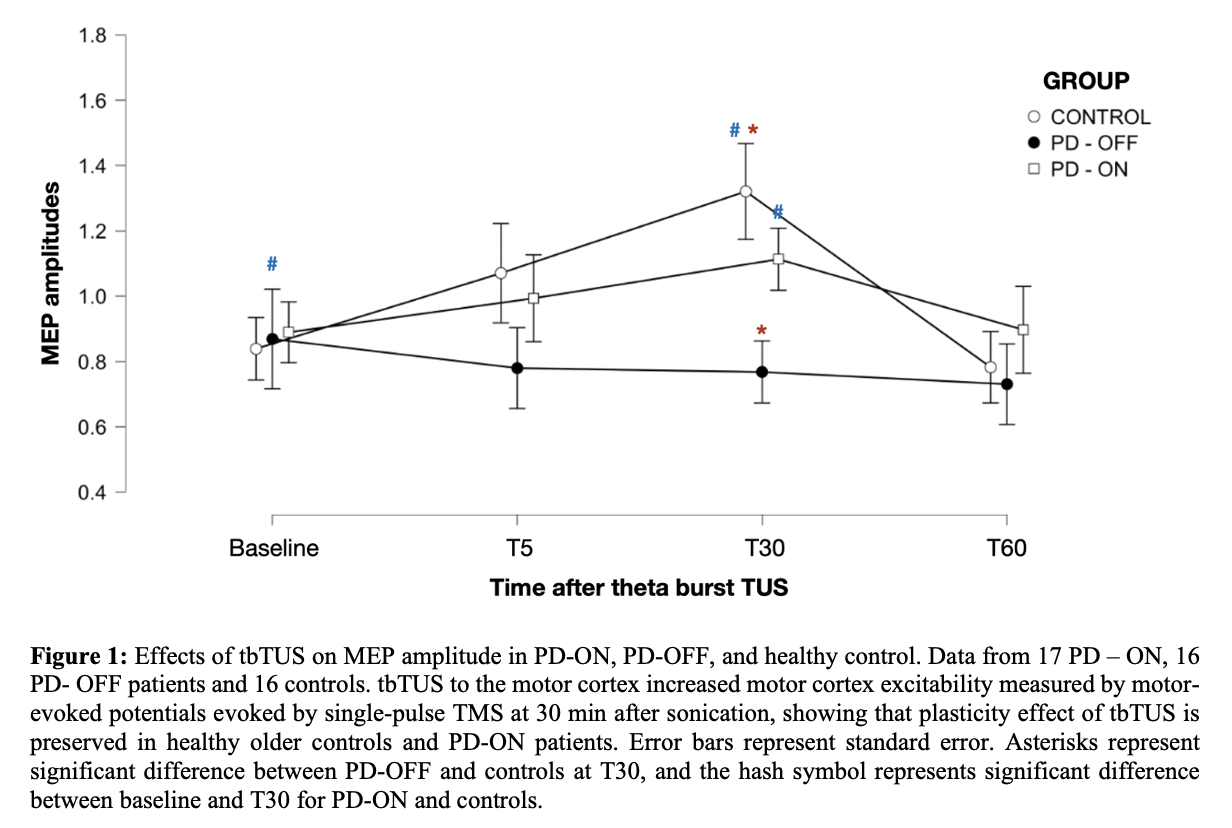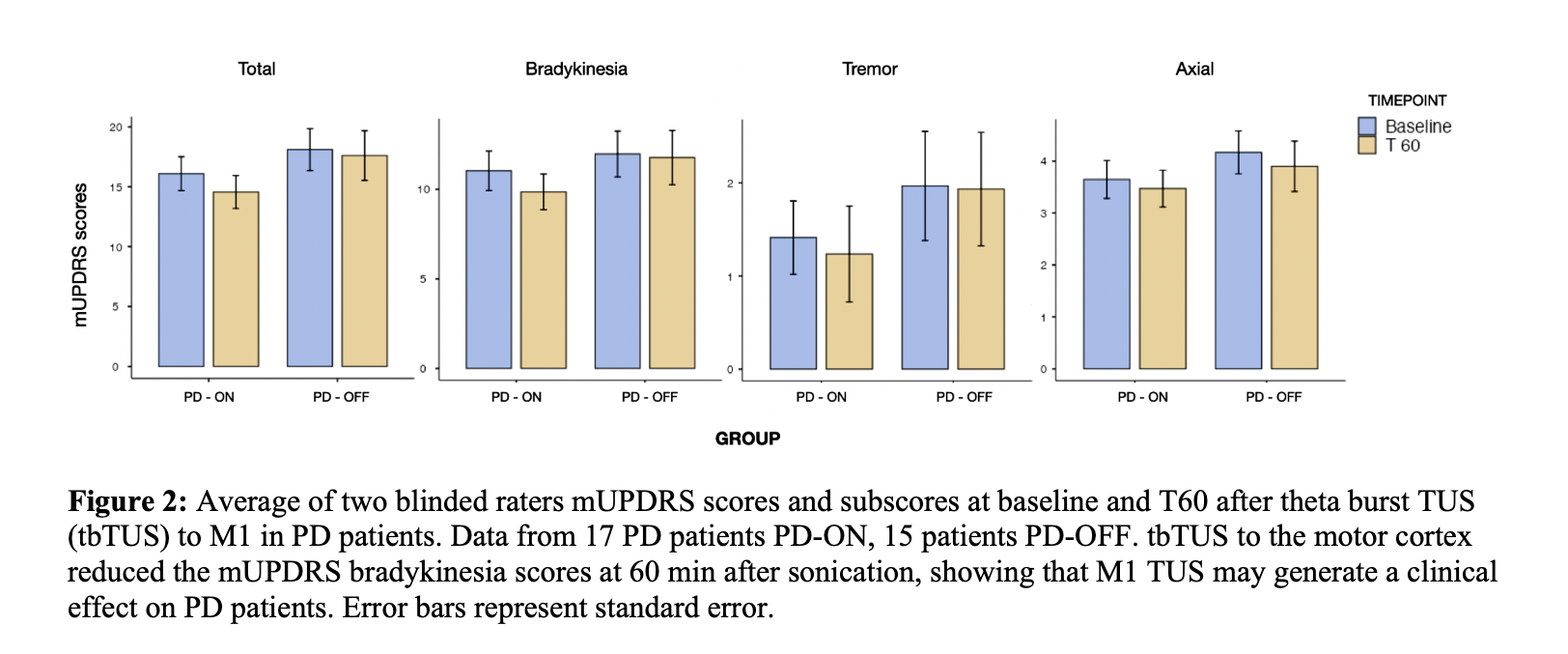Category: Parkinson's Disease: Neurophysiology
Objective: Evaluate the neurophysiological and clinical effects of low-intensity transcranial ultrasound stimulation (TUS) of motor cortex (M1) in patients with Parkinson’s disease (PD).
Background: TUS is a non-invasive neuromodulation technique, which in theta burst mode (tbTUS) can increase cortical excitability, likely due to LTP-plasticity. PD has altered cortical excitability and plasticity of M1 and benefit from non-invasive stimulation in previous studies.
Method: We studied 17 PD patients (4F, 57.8 ± 8.6 years) in ON and OFF dopaminergic medication states, and 16 controls (5F, 62.9±9.2 years) were evaluated. tbTUS was applied for 80 seconds at M1 with 20W/cm2. Motor evoked potential (MEP) was recorded at baseline, at 5-minutes (T5), T30, and T60 after tbTUS. Motor (m)UPDRS was evaluated in PD at baseline and T60 and scored by two blinded raters
Results: A linear mixed model on MEP amplitudes comparing controls to PD-ON showed a significant effect of time ( F=5.30, p=0.002), with no effect of group (F=0.07, p=0.789) or interaction (group x time) ( F=0.88, p=0.454). Posthoc analysis of time showed differences between baseline and T30 (p=0.009) and T30 compared to T60 (p=0.004). When comparing controls with PD-OFF there was significant an effect of time (F = 33.48, p<0.001), with significant interaction between time and group (F = 3.20, p=0.027), and no effect of group (F = 2.92, p=0.098). Posthoc analysis of time showed difference between T30 and T60 (p=0.04). The groups were compared at the different timepoints, there was a significant effect at T30 (p=0.012). The effect of the tbTUS was higher in controls than PD-OFF at T30. When comparing PD-ON with PD-OFF, there was a significant effect of group ( F= 4.41, p=0.038), with no effect of time (F = 0.445, p=0.721) or the interaction between time and group (F=0.741, p=0.530) (Figure 1). There was a significant difference in mUPDRS bradykinesia score between baseline and T60 in PD-ON (Wilcoxon W, p = 0.043) but not in PD-OFF (p= 0.779). The total score and the other sub scores were not different when comparing baseline and T60 in PD-ON or PD-OFF (Figure 2).
Conclusion: The tbTUS induced motor cortical plasticity in older healthy controls and PD patients in ON, but not in OFF state. The PD-ON patients showed improvement of the motor symptoms, highlighting that tbTUS may have a symptomatic effect and could be further explored in future studies.
To cite this abstract in AMA style:
T. Grippe, Y. Shamli Oghli, G. Darmani, JF. Nankoo, N. Raies, C. Sarica, T. Arora, C. Rinchon, C. Gunraj, F. Cardoso, R. Chen. Effects of theta burst transcranial ultrasound stimulation on motor cortex excitability in Parkinson’s disease. [abstract]. Mov Disord. 2023; 38 (suppl 1). https://www.mdsabstracts.org/abstract/effects-of-theta-burst-transcranial-ultrasound-stimulation-on-motor-cortex-excitability-in-parkinsons-disease/. Accessed January 29, 2026.« Back to 2023 International Congress
MDS Abstracts - https://www.mdsabstracts.org/abstract/effects-of-theta-burst-transcranial-ultrasound-stimulation-on-motor-cortex-excitability-in-parkinsons-disease/


